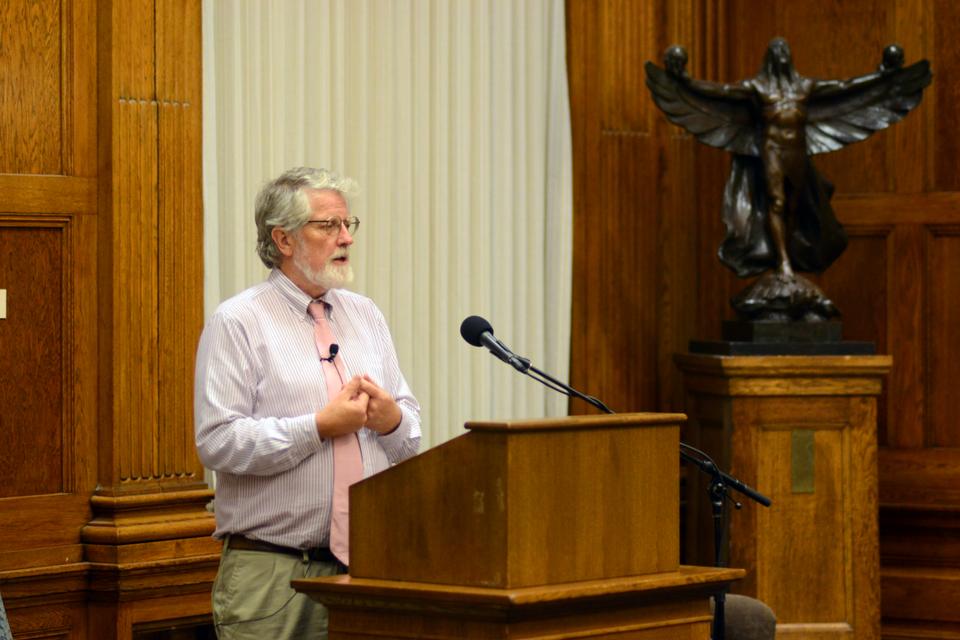
News
HMS Is Facing a Deficit. Under Trump, Some Fear It May Get Worse.

News
Cambridge Police Respond to Three Armed Robberies Over Holiday Weekend

News
What’s Next for Harvard’s Legacy of Slavery Initiative?

News
MassDOT Adds Unpopular Train Layover to Allston I-90 Project in Sudden Reversal

News
Denied Winter Campus Housing, International Students Scramble to Find Alternative Options
Parker Lectures on Journalism and Social Change

The social tensions caused by existing injustices in the world ultimately serve as strong inspiration for journalists, Harvard Kennedy School lecturer Richard Parker said at an event Wednesday on journalism’s role as an agent for social change.
Parker, who came to Harvard after working at several news magazines, extolled journalism—considered dying by many—as a powerful arbiter in discussions of social inequality or oppression.
“We all live in societies which contain injustices of various kinds and in various scopes. The inescapability of that fact creates natural tension,” Parker said. He added that journalism is created by the “people who can speak or write about the possibility of justice.”
Parker spoke candidly about his experiences in journalism, from his working at shuttered political magazine Ramparts to his co-founding of the award-winning independent news magazine Mother Jones. The bimonthly magazine recently made headlines for releasing the video of presidential candidate Mitt Romney calling 47 percent of the American population “dependent on government.”
“The role of journalism is not to reprint the Constitution. It’s not to point to the flag and urge you to salute it. It is rather to do that simple thing which is captured in the phrase, ‘Speaking truth to power,’” he said.
But Parker’s optimism for media is restricted. He explained that he still does not use social media for his journalism.
“Twitter is what I let birds do outside the window,” Parker said. “Your generation has social media and the internet—we didn’t have that.”
Anes Sung ’16, who was encouraged to attend the event by friends familiar with Parker’s work, said that she thought the media sometimes can offer a biased report of objective facts. “The media is becoming more influential every day. A lot of people are ignorant of important issues in the world, and the media serves to provide that information, but at the same time, not a lot of it is true, or it’s biased.”
But Parker ended his talk with enthusiasm for journalism and a call for audience members to join the field. “Think about why you do what you do, in a sense that is larger than yourself. Try to keep your fears in check, and ride your hopes as often as you can,” he said.
Want to keep up with breaking news? Subscribe to our email newsletter.
